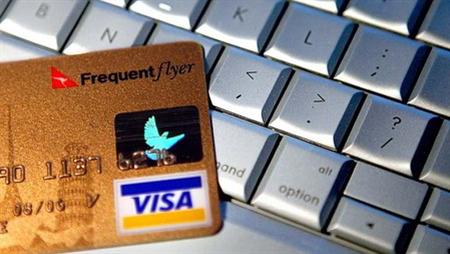2021
How you should be sending every email in your business
We all send out 100’s of emails from our business every
week if not every day. Each one of these emails is a touch point with
your market be it direct or indirect.&...
 Chargeback and Fraudulent Online Payments
Chargeback and Fraudulent Online Payments If you have online payment facilities in your website for payment of goods then you need to understand your liabilities which major shock some of you.
You may have thought you have some protection against use of stolen credit cards from either your bank or credit card service as a merchant taking
online payments. Well, in fact you don't. You need to understand what they Chargeback is.
Quite simply, if someone pays the goods with a credit card that is stolen and you send the goods, then you will most likely be hit with a Chargeback from
your bank. This is where they advise you that as the card was fraudulently used, the bank will withdraw those funds directly out of your bank account.
You have lost your goods and the money received and invariably have little recourse available to you.
The issue is; though the credit card transaction was verified, this in fact does not guarantee authenticity of its use. "But I collected the CVV number
and address details" I hear you say. Well in fact this might not be enough in itself. It depends on how you have set up your payment gateway processing
with your payment gateway provider and how this then interfaces into your online eCommerce processing.
What we are referring to here is the real time processing of the transaction through "seamless" payment gateways i.e. the payment transactions are
verified online in real time.
By default many payment gateways do not include any fraud protection mechanisms although this situation is improving. These measures are usually an add-on service you pay for. Once they are installed you then do need to consider your rules around the set up of the anti-fraud facility and integrate these facilities into your online shop payment processing.
Oddly enough, even the most basic protection, use of the CVV number, is not invoked in some payment gateways. PayPal is one service that do provide both AVS and CVV anti-fraud features as standard across all their payment facilities. Eway, SecurePay, Sagepay and NAB are other leading payment gateways that offer antifraud protection as an included add-on service. Not all Web commerce solutions are by default able to make use of these fraud protection mechanisms. Whilst you may not have automated anti-fraud protection applied in the online transaction process, you may still have the ability to review the integrity of the transaction manually before shipping.
It is also important to understand that these ant-ifraud mechanisms do not entirely guarantee you from being hit with
but the likelihood of such is greatly reduced.

What is essential for online businesses is to recognise that fraud will occur and as such you will be hit with Chargeback . Most businesses that do recognise this fact that this into their pricing. What they also do which is more important, is that they have a risk mitigation process in place to identify possible fraud and how to manage such transactions stop if you sell high-value items and should overseas venue rank high in the risk profile and the need to put appropriate antifraud policies and processes in place is paramount.
 https://www.topleftdesigns.com.au/my-assets/img/blogs/credit-card-chargebacks_New.jpg
300 300
Written by: Greg Tomkins
https://www.topleftdesigns.com.au/my-assets/img/blogs/credit-card-chargebacks_New.jpg
300 300
Written by: Greg Tomkins
 on
on
 https://www.topleftdesigns.com.au/_Assets/images/topleftdesigns_logo_h.jpg
379 118
https://www.topleftdesigns.com.au/_Assets/images/topleftdesigns_logo_h.jpg
379 118